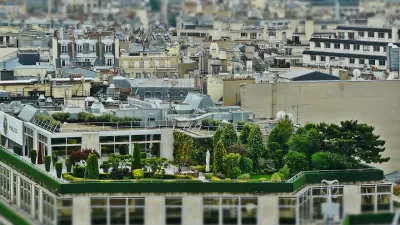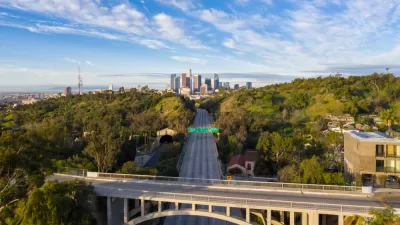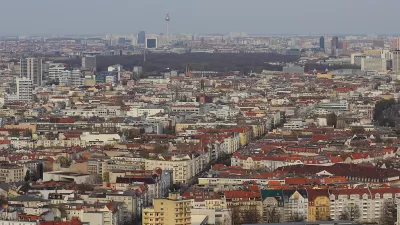The chief policy officer of Google's Sidewalk Labs proposes six first principles of urbanism to frame the potential impact of technology on urban environments.

Rohit T. Aggarwala, the Chief Policy Officer at Sidewalk Labs, has penned a list of "first principles of urbanism" that he intends to use to guide the deployment of technology in cities. The first principles, according to Aggarwala, "identify the essential efficiencies—and costs—of urban environments."
Before launching into the list of first principles, Aggarwala cautions against relying on "arguments for cities that are only true today because of current technology or institutions" and also against mistaking "preferences for intrinsic values."
Aggarwala's first principles are listed in three efficiencies and three costs. On the efficiencies side are resource conservation, greater asset utilization, and the prevalence of physical interactions. On the costs side are a reliance on central systems, a reliance on courtesy and trust, and the need for coordination.
Aggarwala's hope is for these first principles to "form a framework to help us evaluate how changes in technology might affect cities in a thoughtful and systematic way.
FULL STORY: The First Principles of Urbanism: Part I

Alabama: Trump Terminates Settlements for Black Communities Harmed By Raw Sewage
Trump deemed the landmark civil rights agreement “illegal DEI and environmental justice policy.”

Study: Maui’s Plan to Convert Vacation Rentals to Long-Term Housing Could Cause Nearly $1 Billion Economic Loss
The plan would reduce visitor accommodation by 25% resulting in 1,900 jobs lost.

Planetizen Federal Action Tracker
A weekly monitor of how Trump’s orders and actions are impacting planners and planning in America.

Waymo Gets Permission to Map SF’s Market Street
If allowed to operate on the traffic-restricted street, Waymo’s autonomous taxis would have a leg up over ride-hailing competitors — and counter the city’s efforts to grow bike and pedestrian on the thoroughfare.

Parklet Symposium Highlights the Success of Shared Spaces
Parklets got a boost during the Covid-19 pandemic, when the concept was translated to outdoor dining programs that offered restaurants a lifeline during the shutdown.

Federal Homelessness Agency Places Entire Staff on Leave
The U.S. Interagency Council on Homelessness is the only federal agency dedicated to preventing and ending homelessness.
Urban Design for Planners 1: Software Tools
This six-course series explores essential urban design concepts using open source software and equips planners with the tools they need to participate fully in the urban design process.
Planning for Universal Design
Learn the tools for implementing Universal Design in planning regulations.
Caltrans
Smith Gee Studio
Institute for Housing and Urban Development Studies (IHS)
City of Grandview
Harvard GSD Executive Education
Toledo-Lucas County Plan Commissions
Salt Lake City
NYU Wagner Graduate School of Public Service





























